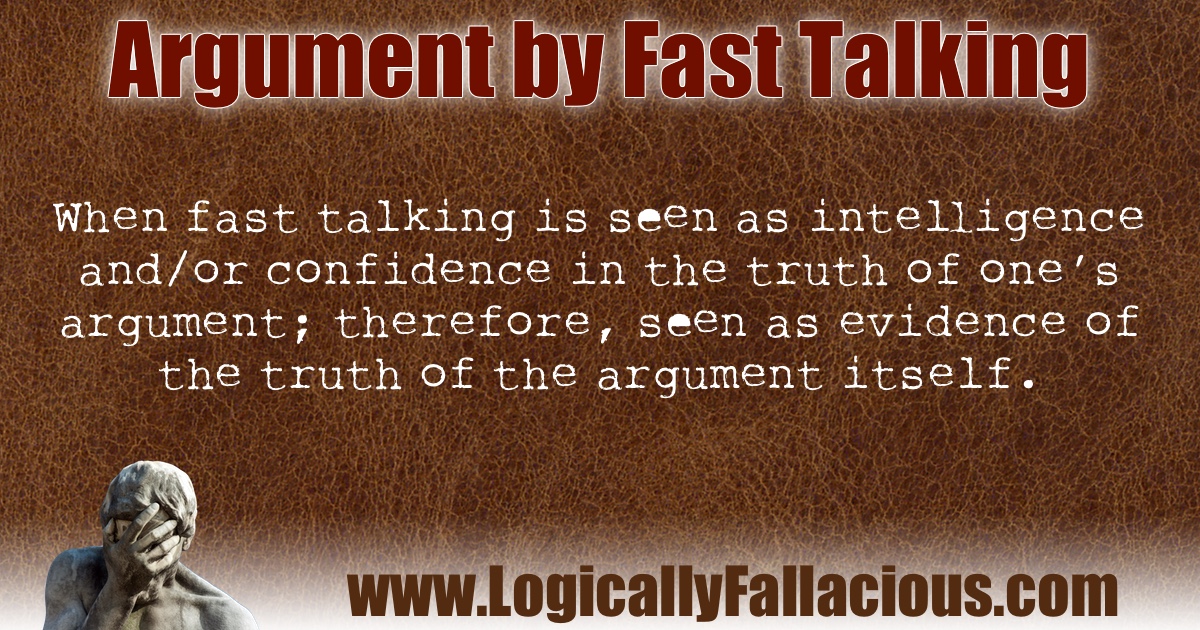Description: When fast talking is seen as intelligence and/or confidence in the truth of one’s argument; therefore, seen as evidence of the truth of the argument itself.
Logical Form:
According to person 1, Y is true.
Person 1 speaks very fast.
Therefore, Y is true.
Example #1: (to be read extremely fast)
I hereby submit that it is crystal clear that there is only one true God, without question, without reserve, without hesitation I can say this because I know the truth and I am here to share it with you. Praise Allah!
Explanation: There is absolutely no evidence in the above claim, and if you read it quickly and clearly, you would persuade more people than if you read it like one of the Beverly Hillbillies. If your intent was to persuade others by not giving them time to process what you have said, then you would be guilty of this fallacious tactic.
Example #2: (same example - to be read extremely fast)
I hereby submit that it is crystal clear that there is only one true God, without question, without reserve, without hesitation I can say this because I know the truth and I am here to share it with you. Praise Allah!
Explanation: This time, as the one evaluating the argument, if you allow the rapid pace of the delivery of the argument to serve as evidence for the claim, you are committing the fallacy. Perhaps the arguer does sound confident, and perhaps you are embarrassed to ask him to repeat the argument or slow down; therefore, you just accept it. Either way, that is fallacious reasoning.
Exception: Naturally fast talkers most likely have no intent to deceive, and if you consciously give no undue weight to the claims of a natural fast talker, then no fallacy has been committed.
Tip: Work on your pace as a part of your speaking. It should be just slow enough where you do not lose your audience, and no slower, unless going for a dramatic effect.

References:
Wormeli, R. (2001). Meet Me in the Middle: Becoming an Accomplished Middle-level Teacher. Stenhouse Publishers.